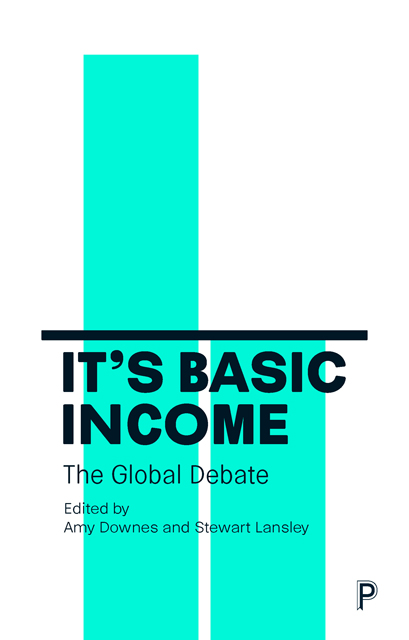11 - Universal basic income for the post-industrial age
Published online by Cambridge University Press: 11 April 2023
Summary
‘… we suggest viewing basic income not as income, but as the capacity to produce and thus to participate actively in society. Capable of much more than just a simple “employment fix”, basic income could help to create no less than a shared political vision for a future society.’
A universal basic income (UBI) is one of the hottest policy debates of the time. However, there is a great misunderstanding in why we should experiment with the policy. Many think of UBI as a way of enabling ‘capacity to consume’. Yet, in the post-industrial age UBI should be seen as enabling ‘capacity to produce and to be active in society’. Failing to see this difference will inevitably connect UBI to ailing structures and diminish it into a curiosity.
The various experiments in basic income that have been launched around the world offer the idea as a solution to automation, lack of disposable income, benefit traps or a bloated bureaucracy. In other words, the goal is to ‘fix’ various parts of the existing relationships between the state, the individual and capital. Currently, the technology-driven vision for our society can be summarised thus: let robots do the dirty work, let a small group of creative entrepreneurs come up with new solutions to emerging problems and the rest of us can live on a universal basic income and the odd jobs the platforms provide.
In the present political climate, however, such a vision could be seen as short-sighted. What people want are jobs for everyone, not basic income. In many countries the public expects this to happen through a return to a resurgent manufacturing industry: a modern-day version of the great industrial society of the past. The UBI movement needs to take this sentiment seriously. Work has been the major source of dignity: the sense of being needed as an active participant and co-creator of the society and its central institutions.
In what follows, we suggest viewing basic income not as income, but as the capacity to produce and thus to participate actively in society. Capable of much more than just a simple ‘employment fix’, basic income could help to create no less than a shared political vision for a future society.
- Type
- Chapter
- Information
- It's Basic IncomeThe Global Debate, pp. 61 - 67Publisher: Bristol University PressPrint publication year: 2018



